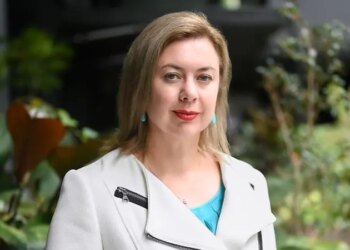Peter Johnson, director of Advisers Digest, said on the latest SMSF Adviser podcast that accountants should check their clients’ small business CGT concessions each year, as it is too late to address these concessions after an asset has been sold.
“I’m constantly badgering accountants to check it each year. If you can get the concessions, there is no tax, but then you have to invest the money,” he said.
“If you can get it in super, the income can be tax-free, and the money going to your kids can be tax-free as well. All the modelling we do is important, as is assessing the business ongoing at all times, because you could have $2 million in revenue or $6 million in assets, and it’s too late to do that assessment after you’ve sold the asset. You’ve got to check it every year.”
He said if small business owners aim to minimise the tax burden for their children or other beneficiaries, they should consider selling some assets held within an SMSF, particularly if they need to generate income.
“If they’re retiring and they’re a small business owner, they want to sell the business, then looking at CGT concessions is a must,” he said.
Aaron Dunn, CEO of Smarter SMSF added that small businesses should review their financial position even more regularly than every 12 months – especially if they have an SMSF.
“Whether you’re an accountant or financial adviser, with estate planning we try and connect the dots with your binding nominations to your broader estate planning,” Dunn said.
“Equally, when you have small businesses, you’ve got to start to connect the dots of what the business looks like and your succession, and then how that looks when you line that up with superannuation which is probably going to be the next vehicle where a lot of those assets are going to drop.”
Johnson said this kind of holistic approach to assets, superannuation and estate planning, is appreciated by clients more often than not.
“Clients love the fact that you’re talking to them about what may happen in 10 years and what their plans are for their business,” he said.
“[Asking if] they’re going to hand it to their kids, sell it, or if they’re just going to walk away from it.
“For example, if they are going to sell it, we need to help them understand what they have to do. All these things advisers should start talking about with those clients now. Sometimes it may come down to the fact they are in the wrong structure. You may not want them in a company structure, but in a trust, because it’s going to be a lot better from a tax point of view. And again, it’s way too late 10 years down the track to start thinking about it.”
Dunn said this type of long-range planning for small business owners and SMSFs is essential in towards minimising the tax impost that may be left to beneficiaries.
“[In SMSFs] we’ve got a much older client base and we used to cap out at age 75 but it’s now out to 85 so the strategies that we need to be thinking about are really from 60 years and beyond.”


